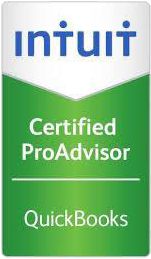insolvency & Restructuring
If you’re not new to the corporate world, then by now you must have heard of the term restructuring and insolvency. If not, then don’t worry, as in this blog we’ll be discussing this subject in detail.
What is Insolvency?
The law of insolvency is pretty easy to understand. It states that the individuals and organizations that are in an economic struggle and aren’t able to repay their debts may go into the proceedings of insolvency.
In insolvency proceedings, legal actions are taken against the insolvent organizations (entities that are in a state of insolvency). In order to pay off the debts, they owe to banks and other investors, the assets of these entities may be liquidated, in turn, relieving the institutions of their outstanding financial liability.
What is Restructuring?
Before a business or an entrepreneur gets involved in insolvency proceedings, they go through a process called restructuring.
It’s basically a practice of negotiating and settling financial issues and debts outside the court, without the legal proceedings. In such scenarios, a meeting between the insolvent entity and the creditors take place, where alternative repayment schedules are suggested and discussed.
Even though restructuring and insolvency are rather unfortunate state of events, you’d be surprised by how often businesses have to deal with it.
Almost every company in the world, at some point in time, has to face an economic setback. However, the important thing here is to understand the depth of this crisis and come up with methods that can help your business come out of this situation with as little damage as possible.
We, at ThomasRoss Financial Group, have years of experience under our belts in devising plans that help companies restructure their brand without losing important assets in the process. Our team of professional financial and strategic planners provides excellent business valuation services. With the help of this service, they form schemes that prove to be extremely beneficial for the business owners in the long run.
What is Business Valuation?
The simple process of evaluating the financial value of a company is called business valuation.
This concept of determining the economic worth of a company can be used for a number of reasons, such as collaboration with another company for partnership, taxation, figuring out the sale value of a business, divorce proceeding, and insolvency and restructuring.
Business valuation isn’t something that is achieved through one particular method. It utilizes expert judgment, relevant information, and years of experience. Hence why, you need professionals to figure out the worth of your business.
How Does Business Valuation Help with Restructuring and Insolvency?
Regardless of whether you and your company are facing restructuring or insolvency, you would be required to present your creditors — banks and investors, with statements and reports of your company’s current worth.
Business valuation assesses a company’s finances as well as assets in order to determine the present financial worth of the business.
The current worth is required in the case of restructuring and insolvency because the creditors need the financial worth of your current assets, in order to determine the method through which you’d be repaying the debts you owe to them.
How Do Financial Planners Help Resolve Restructuring and Insolvency?
The course of actions taken by our financial and strategic planners varies on the situation.
In the Case of Restructuring
- They examine the case and determine the severity of the crisis.
- They shine a light on the available options and devise schemes that help their clients choose the most beneficial path for them.
- They investigate the balance and financial sheets of the insolvent company and help their clients decide which business aspects of their company need to be shut down, in order to regain the lost economic balance of their business.
In the Case of Insolvency
- They provide assistance with insolvency filings.
- They work closely with the insolvency officeholders (administrators and liquidators) and accountants.
- They offer guidance to the directors of the insolvent companies by explaining their roles to the creditors.
- They provide assistance to the insolvent company with the sale of assets or mergers and acquisitions.
- They guide their clients in insolvency litigation and appeals.
- They offer advice to their insolvent client on liability management and methods to overcome insolvency proceedings.
Which Other Situations Require Business Valuation?
Business valuation services aren’t just utilized in the case of restructuring and insolvency. There are other scenarios where you could be required to present your company’s current worth. Here are a few examples:
- Buyouts
- Estate Planning
- Divorce Proceedings
- Gifting
- Financing
- Mergers & Acquisitions
Even though a situation such as restructuring and insolvency can seem rather drastic and immensely damaging, with careful planning and meticulous scheming, it’s possible to overcome it without losing everything. If you need financial and strategic planners for business valuation services in New Jersey, then don’t hesitate to contact us at ThomasRoss Financial Group.




